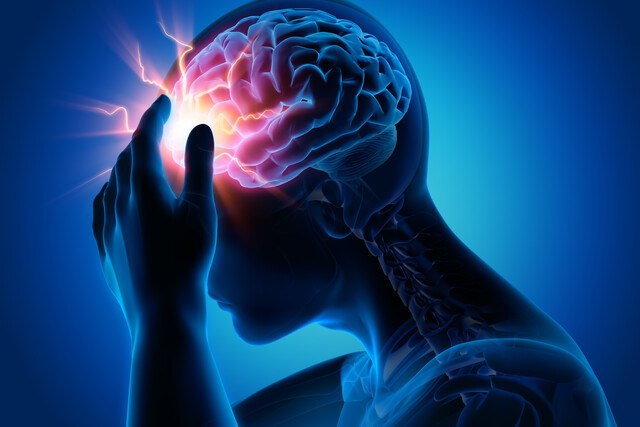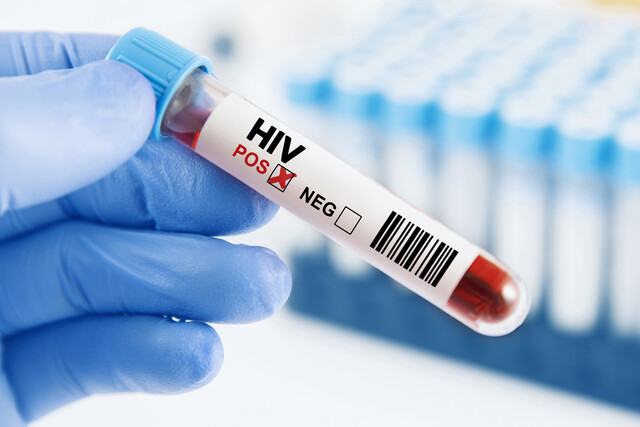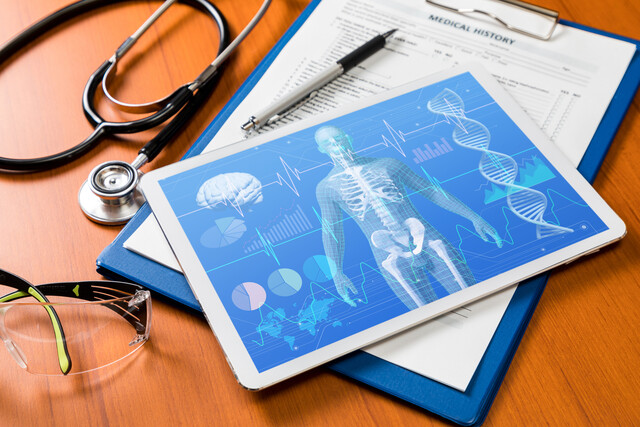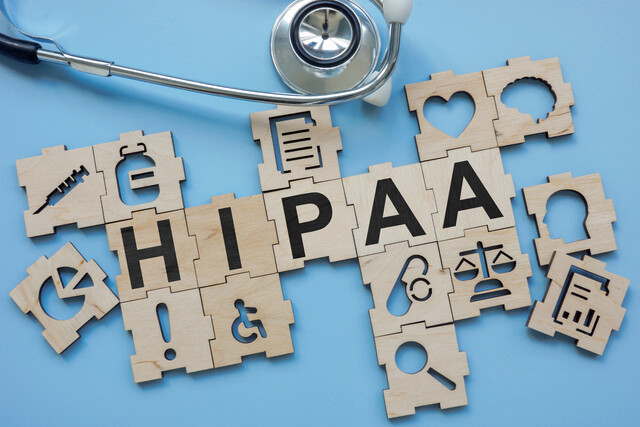Online Class: Diabetes 101

-
14Lessons
-
19Exams &
Assignments -
4Hours
average time -
0.4CEUs
Course Description
Welcome to Diabetes 101: Understanding, Diagnosing and Managing. This introductory course regarding the topic of diabetes is designed to offer students a general understanding of what diabetes is, how it's diagnosed and how it's managed. Students will also learn the anatomy of diabetes, the body organs involved, and the different types of diabetes with which a person may be diagnosed.
This course also covers the importance of glucose and insulin and how each affects the overall function of your body. Symptoms of diabetes as well as what to expect when you visit a doctor are included in these lessons. Testing methods commonly used by diabetics to maintain their blood sugar and insulin levels are also explored. Understanding the basic tools a diabetic may need for daily management of diabetes are introduced, as are the different methods many individuals diagnosed with diabetes take in order to adapt their lifestyle to their condition at home, work, or school.
Students of this course on diabetes will learn about the most common types of complications associated with multiple forms of diabetes and the importance of care and infection prevention among diabetics, most specifically the elderly. Pregnant mothers diagnosed with gestational diabetes will understand the importance of obstetrical and post-delivery care, and enjoy some tips and suggestions for healthy living habits before, during and after a planned pregnancy.
Throughout this course, students will also learn the importance of nutrition and diet for optimal management of diabetes symptoms and conditions. We'll explore a number of coping skills that diabetics can utilize to help prevent stress and depression. Finally, we'll wrap up this introductory course on diabetes by offering tips that every individual can take to help reduce their risk of developing the condition, or at the very least, minimize its impact on their lives.
Course Lessons
Lesson 1. Navigating the World of Diabetes
 Review Practice Worksheet: Lesson-1-Downloadable-18499.pdf
Review Practice Worksheet: Lesson-1-Downloadable-18499.pdf Assessment: Lesson 1 Review Exam
Assessment: Lesson 1 Review Exam
Lesson 2. Diabetes Diagnosis Demystified
 Lesson 2 Video
Lesson 2 Video Review Practice Worksheet: Lesson-2-Activity-18501.pdf
Review Practice Worksheet: Lesson-2-Activity-18501.pdf Assessment: Lesson 2 Review Exam
Assessment: Lesson 2 Review Exam
Lesson 3. The Crucial Role of Glucose in Our Body
 Lesson 3 Video
Lesson 3 Video Review Practice Worksheet: Lesson-3-Downloadable-18503.pdf
Review Practice Worksheet: Lesson-3-Downloadable-18503.pdf Assessment: Lesson 3 Review Exam
Assessment: Lesson 3 Review Exam
Lesson 4. Monitoring Blood Sugar: Understanding the Basics
 Lesson 4 Video
Lesson 4 Video Review Practice Worksheet: Lesson-4-Downloadable-18505.pdf
Review Practice Worksheet: Lesson-4-Downloadable-18505.pdf Complete: Lesson 4 Activity
Complete: Lesson 4 Activity Assessment: Lesson 4 Review Exam
Assessment: Lesson 4 Review Exam
Lesson 5. Embracing a Diabetic Lifestyle
 Lesson 5 Video
Lesson 5 Video Review Practice Worksheet: Lesson-5-StudyGuide-18507.pdf
Review Practice Worksheet: Lesson-5-StudyGuide-18507.pdf Complete: Lesson 5 Activity
Complete: Lesson 5 Activity Assessment: Lesson 5 Review Exam
Assessment: Lesson 5 Review Exam
Lesson 6. Diabetes Care: Insights into Complication Prevention
 Lesson 6 Video
Lesson 6 Video Review Practice Worksheet: Lesson-6-HomeWork-18509.pdf
Review Practice Worksheet: Lesson-6-HomeWork-18509.pdf Assessment: Lesson 6 Review Exam
Assessment: Lesson 6 Review Exam
Lesson 7. Diabetes Complications: A Comprehensive Guide
 Review Practice Worksheet: Lesson-7-Downloadable-18511.pdf
Review Practice Worksheet: Lesson-7-Downloadable-18511.pdf Complete: Lesson 7 Activity
Complete: Lesson 7 Activity Assessment: Lesson 7 Review Exam
Assessment: Lesson 7 Review Exam
Lesson 8. Guarding Against Diabetes-Related Setbacks
 Review Practice Worksheet: Lesson-8-StudyGuide-18513.pdf
Review Practice Worksheet: Lesson-8-StudyGuide-18513.pdf Assessment: Lesson 8 Review Exam
Assessment: Lesson 8 Review Exam
Lesson 9. Caring for Aging Diabetics: A Comprehensive Approach
 Lesson 9 Video
Lesson 9 Video Review Practice Worksheet: Lesson-9-HomeWork-18515.pdf
Review Practice Worksheet: Lesson-9-HomeWork-18515.pdf Complete: Lesson 9 Activity
Complete: Lesson 9 Activity Assessment: Lesson 9 Review Exam
Assessment: Lesson 9 Review Exam
Lesson 10. Exploring the Intricacies of Gestational Diabetes: Risks, Management, and Outcomes
 Lesson 10 Video
Lesson 10 Video Review Practice Worksheet: Lesson-10-HomeWork-18517.pdf
Review Practice Worksheet: Lesson-10-HomeWork-18517.pdf Complete: Lesson 10 Activity
Complete: Lesson 10 Activity Assessment: Lesson 10 Review Exam
Assessment: Lesson 10 Review Exam
Lesson 11. The Diabetic Plate: Sweet Satisfaction Without Sacrifice
 Lesson 11 Video
Lesson 11 Video Review Practice Worksheet: Lesson-11-HomeWork-18519.pdf
Review Practice Worksheet: Lesson-11-HomeWork-18519.pdf Assessment: Lesson 11 Review Exam
Assessment: Lesson 11 Review Exam
Lesson 12. Balancing Life with Diabetes: Emotional and Physical Health
 Lesson 12 Video
Lesson 12 Video Review Practice Worksheet: Lesson-12-Downloadable-18521.pdf
Review Practice Worksheet: Lesson-12-Downloadable-18521.pdf Assessment: Lesson 12 Review Exam
Assessment: Lesson 12 Review Exam
Lesson 13. Living Proactively: Steps to Prevent Diabetes
 Lesson 13 Video
Lesson 13 Video Review Practice Worksheet: Lesson-13-Activity-18522.pdf
Review Practice Worksheet: Lesson-13-Activity-18522.pdf Lesson discussions: End of Course Poll; Course Comments; Course Comments
Lesson discussions: End of Course Poll; Course Comments; Course Comments Assessment: Lesson 13 Review Exam
Assessment: Lesson 13 Review Exam
Lesson 14. Proactive Living: Your Path to Preventing Diabetes
 Review Practice Worksheet: Lesson-14-HomeWork-18523.pdf
Review Practice Worksheet: Lesson-14-HomeWork-18523.pdf Assessment: Lesson 14 Review Exam
Assessment: Lesson 14 Review Exam
Learning Outcomes
- Define the role of the pancreas and its hormones in diabetes management.
- Identify and differentiate between Type 1, Type 2, and gestational diabetes.
- Demonstrate proactive steps for preparing for a doctor's visit by developing a symptom diary and compiling family medical history, effectively communicating potential diabetes symptoms to healthcare professionals.
- Define the symptoms of diabetes that are commonly overlooked, including increased thirst, hunger, and fatigue, and describe their significance for early diagnosis.
- Define glucose's role in the body and its function in energy production.
- Demonstrate how to monitor blood glucose levels using various methods and interpret the results accurately.
- Define the process of blood sugar testing by identifying three main steps: preparation, sample acquisition, and result interpretation.
- Demonstrate the correct usage of a blood glucose monitor and testing strips by successfully completing a self-administered blood sugar test.
- Define and apply personal strategies to manage diabetes through balanced nutrition, consistent exercise, and regular medical consultation, demonstrating improved blood glucose control.
- Identify and incorporate mental health practices and community support mechanisms to enhance emotional well-being and resilience in managing diabetes.
- Identify early signs of diabetic complications such as retinopathy and neuropathy and describe preventive measures through regular monitoring and timely medical interventions.
- Recognize the symptoms and triggers of hypoglycemia and demonstrate effective intervention strategies using fast-acting carbohydrates.
- Recognize symptoms of hypoglycemia and demonstrate appropriate response by administering 10-15 grams of fast-acting carbohydrates within 15 minutes of symptom onset.
- Demonstrate mastery of lesson content at levels of 70% or higher.
Additional Course Information

- Document Your Lifelong Learning Achievements
- Earn an Official Certificate Documenting Course Hours and CEUs
- Verify Your Certificate with a Unique Serial Number Online
- View and Share Your Certificate Online or Download/Print as PDF
- Display Your Certificate on Your Resume and Promote Your Achievements Using Social Media

Student Testimonials
- "A very good class and a very conscientious instructor. Timely classwork feedback and helpful comments. I also found it helpful to see my incorrect answers corrected with the right answers." -- Pamela T.
- "Instructor seemed very knowledgeable and presented the information in a clear manner. Thoroughly enjoyed the class :) Thank you." -- Kathleen S.
- "This was a very helpful course for learning the basics of diabetes." -- Craig B.
- "The course helped me a lot in knowing more about Diabetes. The instructor is diligent." -- Julieta B.
- "I just wanted to thank her and thank for all of the information that was shared." -- Joan R.
- "The entire course was relevant and the teacher excellent!" -- Joseph M.
- "Easy site to maneuver. Thanks!" -- Deborah S.
- "Great class, material was well presented." -- David G.
- "Instructor is amazing very helpful and motivating." -- Roja P.
- "She ia a great instructor!!" -- David K.
Related Courses
-
 33 hours
3.3 CEUs
Comprehensive Medical Terminology 1 & 2
+ More Info
33 hours
3.3 CEUs
Comprehensive Medical Terminology 1 & 2
+ More Info
-
 7 hours
0.7 CEUs
Understanding Concussions
+ More Info
7 hours
0.7 CEUs
Understanding Concussions
+ More Info
-
 5 hours
0.5 CEUs
Child Safety for Parents
+ More Info
5 hours
0.5 CEUs
Child Safety for Parents
+ More Info
-
 10 hours
1.0 CEUs
Understanding Addictions
+ More Info
10 hours
1.0 CEUs
Understanding Addictions
+ More Info
-
 7 hours
0.7 CEUs
Retirement Planning
+ More Info
7 hours
0.7 CEUs
Retirement Planning
+ More Info
-
 14 hours
1.4 CEUs
Medical Terminology for Medical Coders
+ More Info
14 hours
1.4 CEUs
Medical Terminology for Medical Coders
+ More Info
-
 5 hours
0.5 CEUs
Caring for Patients with HIV/AIDS
+ More Info
5 hours
0.5 CEUs
Caring for Patients with HIV/AIDS
+ More Info
-
 18 hours
1.8 CEUs
Medical Terminology 101
+ More Info
18 hours
1.8 CEUs
Medical Terminology 101
+ More Info
-
 17 hours
1.7 CEUs
Medical Terminology 201
+ More Info
17 hours
1.7 CEUs
Medical Terminology 201
+ More Info
-
 8 hours
0.8 CEUs
Medical Office Management
+ More Info
8 hours
0.8 CEUs
Medical Office Management
+ More Info
-
 2 hours
0.2 CEUs
Careers in Healthcare
+ More Info
2 hours
0.2 CEUs
Careers in Healthcare
+ More Info
-
 5 hours
0.5 CEUs
Depression Management
+ More Info
5 hours
0.5 CEUs
Depression Management
+ More Info
-
 17 hours
1.7 CEUs
ICD-10: Medical Coding
+ More Info
17 hours
1.7 CEUs
ICD-10: Medical Coding
+ More Info
-
 6 hours
0.6 CEUs
HIPAA Compliance 101
+ More Info
6 hours
0.6 CEUs
HIPAA Compliance 101
+ More Info
-
 4 hours
0.4 CEUs
Stress Management
+ More Info
4 hours
0.4 CEUs
Stress Management
+ More Info






